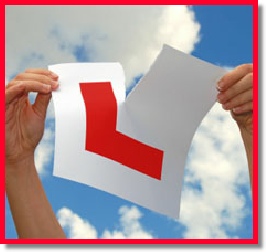 Even if you are the best driver in the country, it is difficult when you have to take the actual take a driving test. You are nervous, scared, and things thing you know just disappear from your memory. To pass your test, it is a good idea to know what expected of you. Some tips and tricks for passing your UK driving tests are:
Even if you are the best driver in the country, it is difficult when you have to take the actual take a driving test. You are nervous, scared, and things thing you know just disappear from your memory. To pass your test, it is a good idea to know what expected of you. Some tips and tricks for passing your UK driving tests are:
- Remember that the driving test is easy. You drive for about 35 minutes. The roads you drive on for the test are the same ones you have probably driven before. Try and remember what is on the rough and all it foibles.
- Get extra experience and drive with parents or relatives as much as they will let you. Ask them to critique your driving.
- Practice the general maneuvers as often as you can. Parking, stopping, turning and any other maneuver required takes practice. If you are familiar with these maneuvers, you will do fine.
- Do not panic. If you make a mistake or feel scared and nervous or your mind goes blank, remember that this thing can happen to anyone, anywhere and at any time. Remain calm, assess your mistakes or emotions and correct them. Let your examiner know you realize you made a mistake and explain how you will correct this error.
- Study the exam booklet. Become familiar with the DVLA standards of driving and what is expected of you as a driver in the UK. Knowing the signs and highway codes will give you confidence when driving with an examiner.
- Learn your vehicle. Life the bonnet and have a quick look at the mechanics of your machine. If you are familiar with your vehicle, you may be more relaxed. Ask your instructor, friends and parents how to change a tire, check the oil and learn the basics of how your vehicle mechanically operates.
- Eat before your test. Most people do not eat when they are nervous and ready to panic. You just magnify your stress levels by not eating. Eating will help settle your nerves and give you the impetus to maintain your focus on what is going on.
- If you do not hear the instructions from the examiner, speak up. Ask what they said, don’t stay silent and try to guess the instructions. Have them repeat what they just said. This will help you confidently carry out their instructions.
- Arrive at the testing area a few minutes before your appointed time. Take a deep breath, shake your hands, and try to relax. A nervous driver will make mistakes; so don’t be a nervous driver. You will do fine.
Follow these tips and it should help when you take your driving test. If you have questions or are looking for a professional driving instructor, please do not to contact as at James School of Motoring, Essex.








